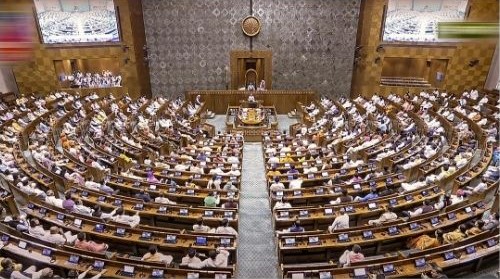Don't have an account?
Login to EaseMyDeal

2023-09-20
356
In a significant development in Indian politics, the 128th Constitutional Amendment Bill, 2023, aimed at providing 33% reservation for women in the Lok Sabha and all state Legislative Assemblies, is currently under discussion in the Parliament. This historic bill, known as 'Nari Shakti Vandan Adhiniyam,' has been the center of attention for the last 27 years, and it is finally receiving renewed attention and support from the Congress party. However, what makes this debate even more interesting is Congress's demand for a sub-clause that ensures the representation of Other Backward Classes (OBCs), Scheduled Castes (SCs), and Scheduled Tribes (STs) in this reservation.
Congress Backs the Women’s Reservation Bill
The Women’s Reservation Bill debate in the Parliament commenced with Sonia Gandhi, the Congress parliamentary party chief, extending her party's unwavering support for the bill. In her opening statement, she emphatically declared, "I stand here in support of Nari Shakti Vandan Adhiniyam." This resounding endorsement by the Congress leader reaffirms the importance of empowering women in the political sphere.
Demand for Inclusive Representation
What sets this moment apart is Congress's demand for inclusivity within the Women’s Reservation Bill. Sonia Gandhi emphasized that the bill must not only ensure gender equality but also address the need for representation of marginalized communities, including OBCs, SCs, and STs. This demand stems from the recognition that true empowerment cannot be achieved unless it encompasses all sections of society.
Historical Perspective
The Women’s Reservation Bill has a long and tumultuous history in Indian politics. It has faced numerous hurdles and challenges over the years, primarily due to a lack of consensus and political will. This 128th Constitutional Amendment Bill represents a fresh attempt to bring about a positive change in the political landscape of India. Unlike a previous bill that failed to pass, this new bill holds the promise of becoming a reality.
Opposition's Concerns
While the Congress party's stance on the Women’s Reservation Bill is clear, the opposition has voiced some concerns. They argue that the bill lacks clarity regarding its implementation timeline, which they deem a "huge betrayal" to women. Additionally, the opposition has criticized the government for not providing quotas for backward classes. This criticism reflects a shift in the Congress party's stance since 2010 when it faced stiff opposition from parties like the Samajwadi Party and the Rashtriya Janata Dal, which demanded quotas within quotas for OBCs and minorities.
Conclusion
The ongoing debate on the Women’s Reservation Bill in the Indian Parliament is a significant step towards achieving gender equality in politics. Congress's support for the bill, along with its demand for a sub-clause to ensure the representation of OBCs, SCs, and STs, underscores the importance of inclusive empowerment. While challenges remain, this renewed push for the bill offers hope that Indian politics is evolving towards a more equitable and representative future. As the discussions continue, it remains to be seen how this historic bill will shape the political landscape of India.

Write A Comment